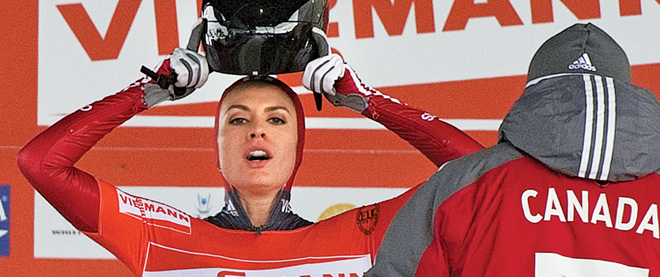Good news, bad news: Feb. 3-9, 2011
Ottawa and Alberta are establishing a new, “world-class” monitoring system for the Alberta oil sands
Andy Clark/Reuters
Share
Good news

Drilling down for good
Ottawa and Alberta are establishing a new, “world-class” monitoring system for the Alberta oil sands. The beefed-up plan, which will cost the industry $50 million a year for the first three years, requires that water, air and habitat around oil sands facilities be tested regularly. The news comes after the Alberta Environmental Monitoring Panel called for rigorous, independent surveillance of the industry. While the monitoring system so far is under the purview of federal and provincial governments, it is proof that concerns are being taken seriously.
Taking off
Canadian airlines enjoyed a mini-boom in January, a month in which, historically, business travel drops. But this year, major carriers experienced record passenger numbers: WestJet, Air Canada and Porter enjoyed significant growth, partly due to a boost in trips to Mont Tremblant and Vermont. Meanwhile, the surging job market in the U.S. has analysts in Canada optimistic that higher employment south of the border will mean more demand for Canadian goods and services.
Let’s hear it for good neighbours.
Far out! It’s been a wild week for space fans: NASA released footage of the moon’s north pole, which reveals a surface made rugged with craters from asteroids. Then scientists announced that a fourth “potentially habitable” planet had been located outside the solar system, with temperatures that could support water and living organisms. With such exciting discoveries under way, it’s no surprise that between November and January, NASA received its second-highest number of astronaut applications: 6,300. Only nine to 15 people will make the cut.
Making the right call
A U.S. criminal investigation of Lance Armstrong was dropped for lack of evidence. At issue was not whether the seven-time Tour de France winner was blood doping—which isn’t even a federal crime—but whether he fraudulently solicited cycling sponsorships while doping. Overreaching government intervention is not the solution. Sport must police itself, as was the case with Alberto Contador, who was stripped of his 2010 Tour title after being found guilty of blood doping by a sports tribunal.
Bad news

Bearing down on China
In a signal of improving relations, China is reportedly sending pandas to Canada following Prime Minister Stephen Harper’s visit. The trip is meant to emphasize economic ties, noteworthy given Harper’s previous reluctance to deal with China due to human rights violations. But recent goodwill may be undermined by China’s decision to follow Russia in vetoing a UN resolution to pressure Syria’s president to resign and end the crackdowns on government protesters. Officials say Harper will address this “wrong” on his trip. Over 5,000 have died in Syria. A few cuddly pandas can’t smooth over this dispute.
Nonsense begets nonsense
It is understandable that Conservative Sen. Pierre-Hugues Boisvenu recommended putting ropes inside the cells of prisoners so they can hang themselves. He is, after all, the father of a woman who was raped and murdered, and he is a staunch advocate of victims’ rights. Clearly, authorities shouldn’t heed his suggestion, but the outrage with which it was met is similarly foolhardy: a Quebec man has filed a criminal complaint against Boisvenu alleging his words incite suicide. One wild statement doesn’t justify another.
Pink-faced
Pink ribbons have long elicited solidarity among women affected by breast cancer. Now, they threaten to become a symbol of dirty politics. The Susan G. Komen for the Cure charity, which made the ribbons famous, came under fire after announcing it would stop funding Planned Parenthood due to an investigation launched by a congressman, reportedly at the behest of anti-abortion groups. Komen later reversed its decision amid public outcry, but all this political manoeuvring should leave pink cheeks all around.
Loose lips
The hacker group Anonymous released a recording of a conference call between the FBI, Scotland Yard and other police agencies. The group intercepted the call after it obtained an email identifying the participants. The most worrisome part of all this: that the FBI and other agencies are relying on emails to communicate sensitive information. If a group of hackers can crack them, imagine what the real spies are up to.